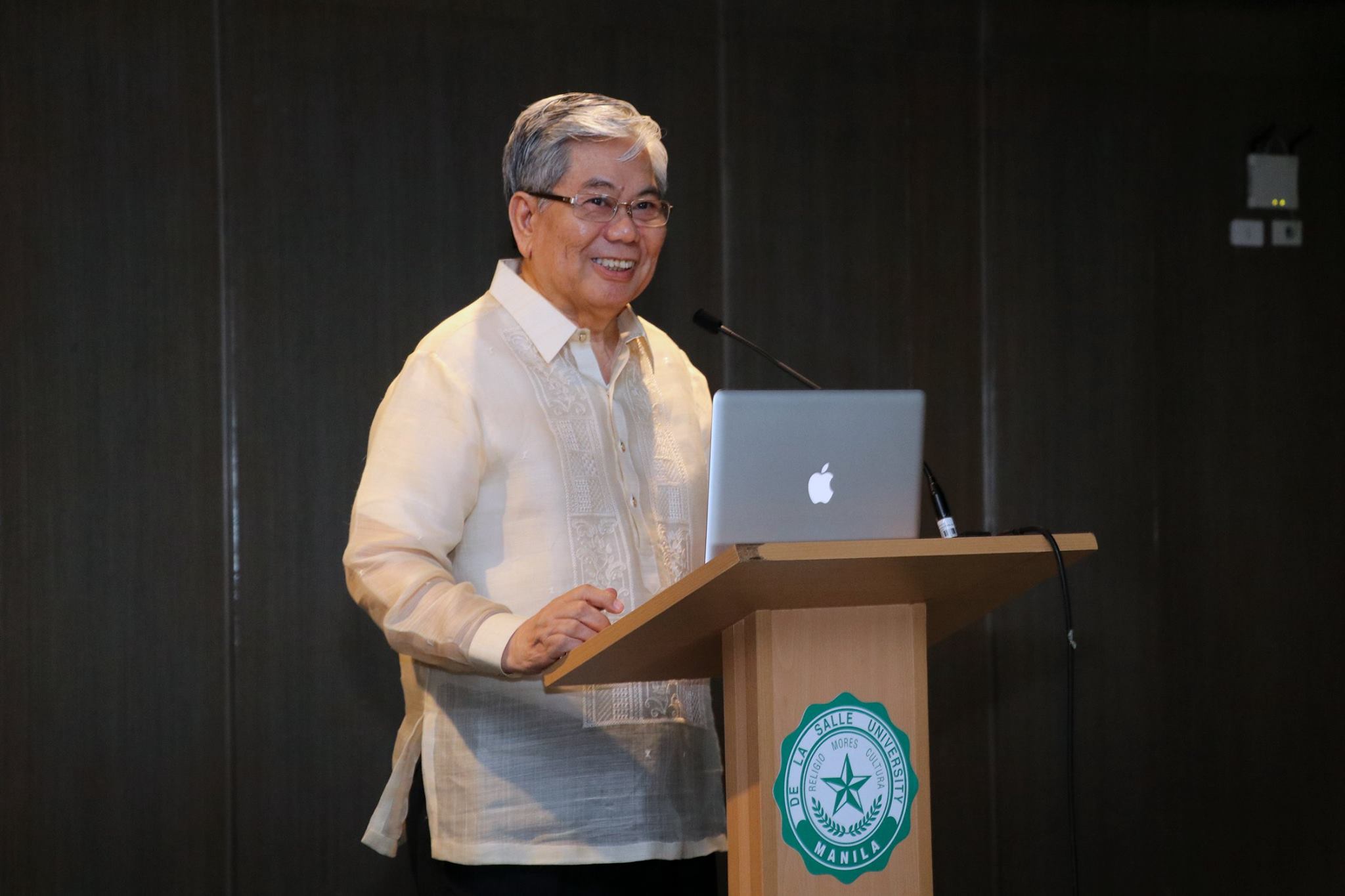
Photo courtesy of Dr Francisco Magno taken during the PPSA Distinguished Leadership Lecture, 1 March 2017
I was fortunate to have done my M.A. and Ph.D. studies in Washington D.C. and my doctoral dissertation research in the United Nations and in Southeast Asia. It was a privilege for me to have witnessed upclose the dynamics of domestic and international politics in my host countries during the escalation of the Vietnam War and the height of the anti-war movement in the 1960s, triggered by the assassination of the leading anti-war advocates, Rev. Martin Luther King and Senator Robert Kennedy.
My exposure to the realities of international relations deepened my appreciation of ideologies and alternative political and social systems. It strengthened my resolve to devote my career in the service of peace promotion.
In 1976, I organized the first Philippine delegation to China since the exchange of diplomatic relations the year before. Four years later, as Chair of the Philippine Social Science Council, I headed the social science delegation to China. Aside from having been a Visiting Professor in various foreign universities and as a Research Fellow in international research institutes, I participated in peace forums (Russia, Iran, Egypt, Libya, Mexico, Peru, Chile, Nepal), inter-religious dialogues (Vatican, India, Indonesia, Sri Lanka, Pakistan) and meetings with regional organizations (Asia-Pacific Economic Cooperation, Andean Community, East Asia-Latin American Forum, Pacific Islands Forum, Shanghai Cooperation Organization, Southern African Development Community, South Asian Association for Regional Cooperation), where I had the opportunity to exchange views on foreign relations and development issues. Such intellectual and cultural immersion afforded me the holistic perspective that later helped me in my task in framing the 1987 Constitution, in performing my diplomatic and administrative functions for ASEAN in 2003-2006 and 2010-2012, and as a Co-Convenor in the Citizens Council for the Bangsamoro Basic Law in 2015. But most of all, the praxis gave me the credibility to share with my students and colleagues my evaluation of the validity of Western-dominated Political Science theories.
Remarks of Dr. Aileen S.P.Baviera
In her remarks as discussant during Dr. Villacorta’s acceptance speech and public lecture, APPFI President Aileen Baviera said that as a fellow political scientist, who like the awardee was an enthusiast of international affairs, she envied the long and colorful journey that Dr. Villacorta’s career had taken him on. A core theme in his life had been advocacies for peace in the world and an independent foreign policy for the Philippines. The first remained ever relevant, in light of recent geopolitical tensions once more involving major powers competing for influence in different parts of the world. It seems that the prospects for armed conflict are more evident now than at any time since the end of the Cold War, she said. The second – advocacy for an independent foreign policy – has been a principle long embedded in the Philippine Constitution, in no small part due to Dr Villacorta’s contributions and which therefore will forever be remembered as part of his legacy. In the recent context of challenges to the country’s maritime security and sovereignty, and uncertainties in the foreign policies of traditional allies, but with the Duterte government eager to find new paths to peace and security for the country, the crafting of an independent foreign policy entails both opportunities and risks. Therefore Dr. Villacorta’s journey is far from over, and many are bound to continue to seek wise counsel from experts like him.
Related Article: PPSA Awards APPFI Board Member Wilfrido V. Villacorta
